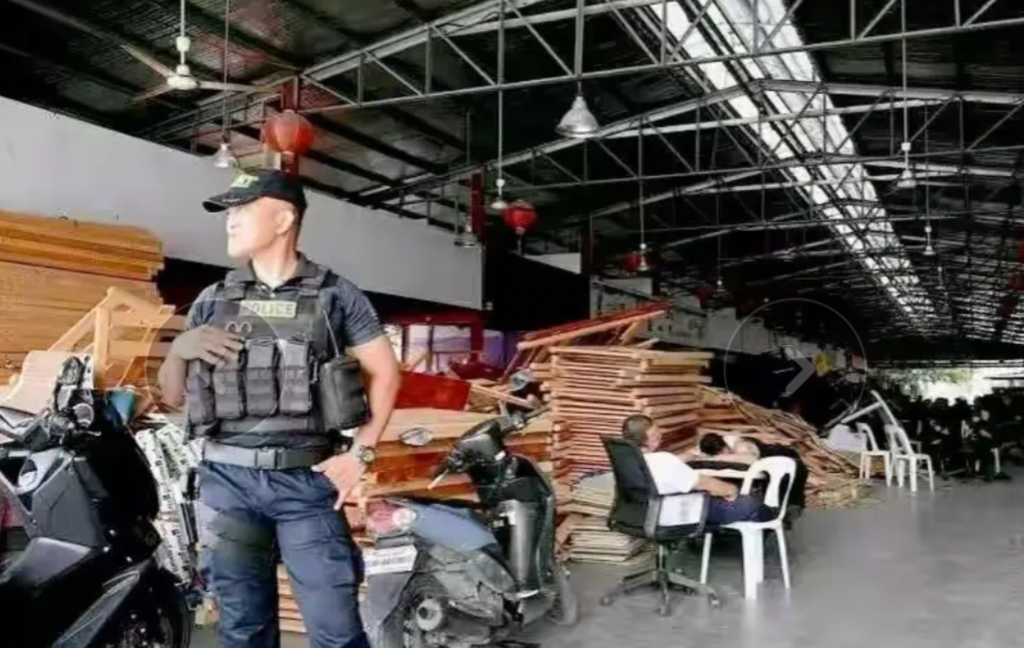The internet, a double-edged sword of the modern era, has brought both opportunities and perils for criminal networks. One of the darkest aspects of the digital age is the proliferation of scam centres, where unsuspecting victims are lured into a world of deception and exploitation. In this blog post, we will explore the mechanics of scam centres, shedding light on how victims are enticed and ultimately trapped in a web of deceit.
Unwilling Participants
Human trafficking, a pervasive global issue, often preys on the most vulnerable members of society. Victims are coerced or deceived into situations where their freedom is stripped away, and their autonomy is crushed. Many of these unfortunate individuals are subsequently funnelled into scam centres, where they are forced to participate in illegal activities, often against their will.
How the recruitment process typically works is a trafficker will use various methods to recruit their victims, such as false promises that seem to look like legitimate employment overseas. These victims, often recruited for their knowledge of English, believe they are embarking on a journey to a better life. However, upon reaching their destination, they discover the grim reality of their situation.
Inside the Scam Centers
Scam centres, operating in the shadows, are hubs of criminal activity. Victims trafficked into these centres find themselves trapped in an environment of deception and exploitation. They are forced to engage in a range of fraudulent activities, from phone-based scams to online fraud, romance scams, and more. The victims have no choice but to obey their traffickers, facing dire consequences if they resist.
If a victim attempts to escape or refuses to obey their traffickers’ orders, they are subjected to horrifying consequences. These repercussions may include various forms of physical and psychological torture, creating an atmosphere of fear and coercion that keeps victims obedient. Additionally, some victims may face the terrifying prospect of being resold to other scamming compounds, perpetuating their cycle of exploitation and abuse. In the most harrowing cases, non-compliance with the traffickers’ demands can even result in the loss of life, underscoring the extreme danger and vulnerability that victims are trapped in this horrendous circumstance.
Global Reach
Human trafficking into scam centres knows no boundaries. Criminal networks involved in these activities operate on an international scale, making it challenging for law enforcement agencies to track and dismantle these operations effectively. Victims are trafficked across borders, further complicating the efforts to rescue and support them.
This transnational nature of the issue requires enhanced international cooperation and information-sharing among law enforcement agencies and organisations dedicated to combating human trafficking. Efforts to address this problem must extend beyond borders and involve a concerted global effort to dismantle the networks responsible for these heinous crimes and ensure the safety and recovery of the victims caught in this grasp.
The Legal Battle
Efforts to combat human trafficking into scam centres are fraught with legal complexities, particularly concerning the victims forced to engage in scams. When rescued or escaping these harrowing environments, many of these individuals face the grim prospect of being prosecuted in their home countries for their involuntary involvement in fraudulent activities. This legal conundrum places an additional burden on survivors, who must grapple not only with the trauma of their ordeal but also with the potential for further victimization within the legal system. Balancing the imperative of holding perpetrators accountable with the need to protect and rehabilitate survivors remains a significant challenge in the fight against this insidious intersection of human trafficking and scam centres.
Supporting Survivors
Support services for survivors of human trafficking into scam centres are essential. Non-governmental organizations (NGOs) and advocacy groups play a vital role in providing assistance, shelter, counselling, and legal support to survivors. These organizations also work to raise awareness about the issue and advocate for stronger legislation to combat these interconnected crimes.
The intersection of human trafficking and scam centres is a chilling reminder of the depths of human exploitation. It is imperative that we shine a light on this dark corner of the internet, raise awareness about the tactics used by traffickers, and support the efforts of law enforcement agencies and NGOs working tirelessly to combat these crimes.
As individuals, we can contribute by staying informed, recognizing the signs of human trafficking, and reporting suspicious activities. By supporting organizations that provide assistance to survivors and advocating for stronger legislation and enforcement, we can collectively work towards eradicating this heinous intersection of human suffering.
Our collective efforts can help break the chains that bind victims to scam centres and bring those responsible for these crimes to justice. It’s a challenging battle, but one that we must fight to protect the most vulnerable among us.


